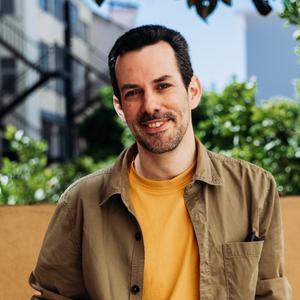In 2019 I was diagnosed with Multiple Sclerosis (MS). It’s a condition where your immune system targets your central nervous system. Your brain, spinal cord, and nerves are attacked, their myelin sheath is stripped, and the lesions left behind can bring numerous symptoms. Your blood is eating your brain.
Later on, I began work on Gregory MS, an AI system to find new therapies, new medicine, and relevant clinical trials.
It’s been 3 years, @António Lopes and @Margarida Gomes joined me, the project grew more than I expected. We even took steps to make it usable for other topics of research and made the code available under an Open Source license. We refer to the generic version as “Gregory AI”, the MS counterpart is just an implementation.
2023 was quite a year for Gregory, you can get all the details in the activities report. We are an independent project with no obligation for accountability, but have always felt it was important to share our progress with interested parties.
What’s not on the report is a conversation I had with another organisation.
What’s your impact?
Taking a breath I paid attention. It was a good question and a realisation that measuring it was never in our activities or goals. We keep track of subscribers, we track visitors, we build dashboards to map areas of research.
They were referring to Impact Management Project Framework.
What are we contributing to? Who are the stakeholders? How Much are stakeholders experiencing the outcome? Contribution whether our efforts resulted in outcomes that were better than what would have occurred otherwise. Risk of having a different impact than expected.
We stood our ground in those terms, pointing to visitors, donations, subscribers, and how much we had mapped the MS Research field.
This morning I struck a cord when we published the activities report for last year. The IMP is focused on a specific game and we are playing on a larger board.
The impact we are looking for
Let’s not be naive, money is important. It opens doors and fuels innovation from within an organisation or ecosystem. It’s not at all my motivation for Gregory and I have smiled many times at the question “What’s your business model?”.
We would like to find one that allowed sustainability for the open-source code, and made Gregory easier to use by doctors and researchers from all fields. Right now that isn’t our focus. We’re a small team and we are focusing on building something good. António said once during our talks, Make it small, but make it good.
And Gregory is a good tool. Used right it can map the research being published in real time. We know who is publishing more and, with some research, we could find out who is funding them and related clinical trials. Gregory is shedding light into what was once an obscure room and making it reachable to everyone.
It’s easy for us to look at the data coming in and see which areas big pharma is focusing on and at the same time wonder why others are left deserted. While it may be worrisome, to see resources squandered into finding gold in the same plot of land, there’s a bright side.
What’s the impact of giving hope?
Sometimes my phone dings. Another one of my robots is paying attention to Gregory and shouts “He found something!” (A repair pathway lost in multiple sclerosis provides a new drug opportunity.)
I work on Gregory every day. I had to learn how to manage a server, how to set up automatic deployment of new features, how to write questions in Structured Query Language (SQL)1, I designed the database the best I could.
Mistakes were made, but @António had my back, and the @Lobsters2 were there to help and guide us the best they could.
Today I feel we have built something with an enormous potential, and we found allies along the way. Friends, journalists, academics, and a few doctors. People who believe that Gregory can be good for everyone.
Last year, the team from the Nova SBE Data Science Knowledge Center saw what we were doing and offered to help. Leid Zejnilovic and Lénia Mestrinho opened the door and their Master’s students in Business Analytics brought us a refreshing energy.
And of course, People with MS. There are 1.8 million people with MS worldwide3, and a few of those have chosen to stand and fight. We recently found out about Solving MS, a patient-led charity created to locate, track and fund scientific and/or medical research and share clinical trial status for all forms of the disease.
The group is doing a manual check of Gregory’s database to find relevant clinical trials. This saves them time because Gregory taps into the ClinicalTrials.gov website, and also the WHO registry of clinical trials. In return, we have improved some of the dashboards and opened the door to their requests for new features.
So there’s no impact
Not under the IMP guidance, no. And right now the project is running at a loss.
We also don’t have much support from the medical community. Last year we saw a doctor join us to help validate some keywords and criteria for relevance and felt seen for the first time. Being ignored or dismissed happens so often that I have become desensitised to it. I keep going.
Some days, my symptoms feel worse. It’s hard to walk and simple tasks turn into strategic decisions. And every day I know that in the time I was awake me and my friends did something to push this boulder in the right direction.
No, Gregory hasn’t generated any impact because he’s made of hope. That’s what is across every page of the activities report. And we’re still hoping, we are still pushing forward. And considering the friends we are making along the way, I believe we’re on the right path.

